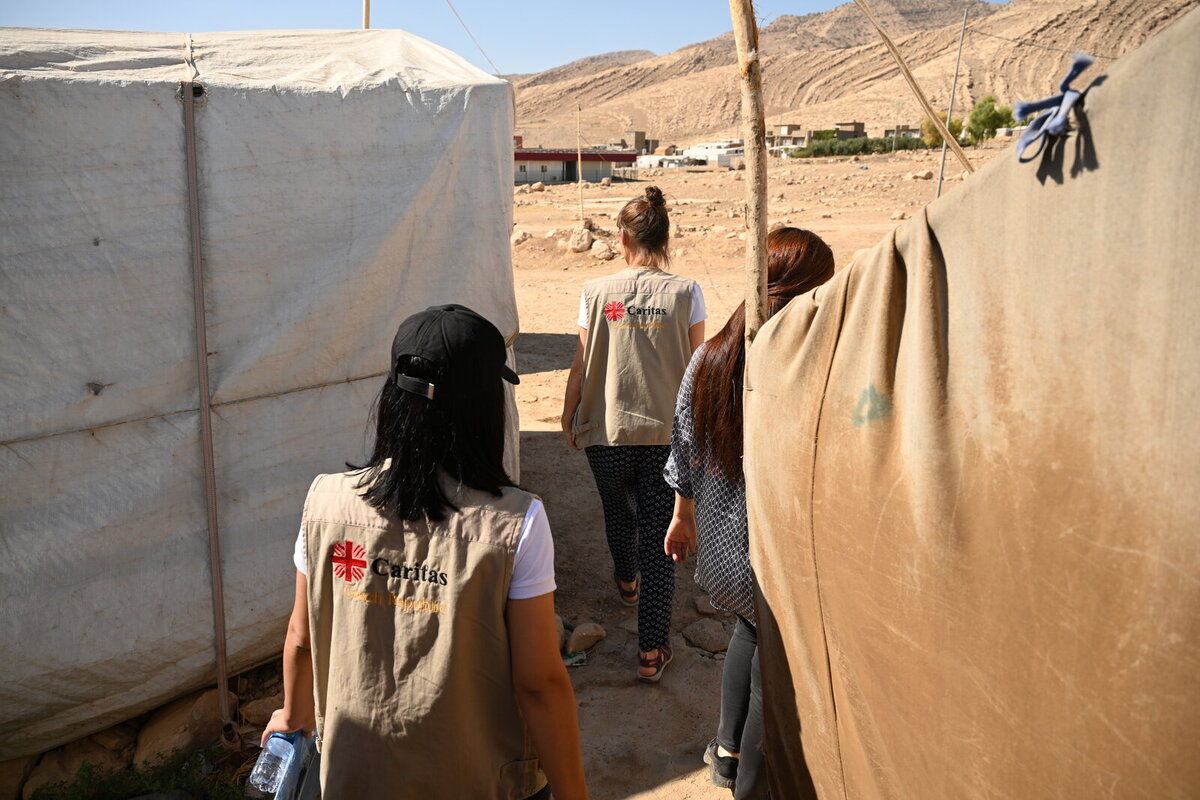Did you know that women make up over 40% of the half of a million humanitarian workers who provide frontline care during emergencies, wars and disasters? There are many reasons why it is essential to acknowledge the work women do in humanitarian aid, from providing emotional support to empowering young girls. Let us show you how women impact the humanitarian field.
1. Women humanitarian workers are crucial when offering support to women affected by humanitarian crises
Women face specific challenges during disasters and crises that other women might be able to understand and deal with better. They can put themself in the shoes of disadvantaged women and know what they are going through. Moreover, in cases when a female worker is not present, women can often feel uncomfortable discussing sensitive topics with the male workers.
2. Women humanitarian workers can often uncover invisible problems related to women’s health
Women humanitarian workers might better understand situations connected to the sexual and reproductive health of women that their male counterparts can often not fully comprehend. Personal experience can be crucial in providing reasonable quality assistance. Women humanitarian workers can be better suited to give emotional support to other women. The presence of women humanitarian workers in the field can help successfully deal with some barriers women face in accessing healthcare. The stigma and the lack of information can be a limit for many women, and the situation gets even more tricky during conflict and humanitarian emergencies.
3. Women humanitarian workers can bring a unique perspective and understanding of local cultures, traditions and social customs
Women humanitarian workers who themselves are from the local communities have a deep understanding of local conditions and can bring a unique perspective and knowledge of local cultures, traditions and social customs. They can understand the people and help on a personal level. Women can be very empathetic and multifaceted, which is a great strength because it allows them to empathise with different societies. In many different societies, women can also access spaces and populations that may be inaccessible to men because of cultural or social norms. Women aid workers can reach out to women and children who might otherwise be overlooked and provide them with basic services and protection.
4. Women humanitarian workers can often better address gender-based violence
It is a known fact that women are disproportionately affected by gender-based violence during humanitarian crises, which can include trafficking, sexual harassment, assault and domestic violence. In fact, 70% of women in humanitarian crises experience gender-based violence, compared with 35% worldwide. In times of crises, it is therefore essential to have women workers in humanitarian teams, who can often better understand the trauma that these situations can bring to women. As a result of the trauma, in some cases women may be more willing to talk to women than men and may have a deeper trust in other women. Equally important, women humanitarian workers play a crucial role in raising awareness to encourage a cultural shift where gender crimes are not used as a war tool.
5. Women humanitarian workers serve as role models for other women
The best motivation is to lead by example. This is also true when working in the humanitarian sector. If humanitarian teams are diverse and have an equal representation of women, this can motivate other women to become humanitarians. Women humanitarians serve as important role models for other women and girls, can be essential mentors and can help them navigate the humanitarian sector.
6. Humanitarian teams work better when they are diverse and inclusive
Work teams, not just humanitarian ones, perform better when they are diverse and inclusive. Women humanitarian workers bring a unique perspective to humanitarian and development aid and it is essential that they are involved in the decision-making process in preparing humanitarian and development projects. This way, they can contribute to a comprehensive approach to providing assistance to people in need.
Are you interested in news from the world of humanitarian and development aid? Sign up for our regular newsletter.












